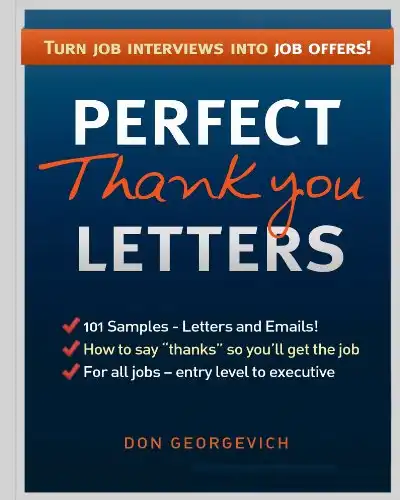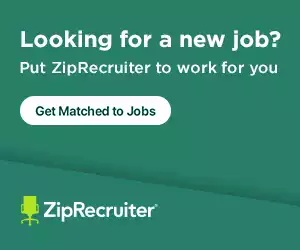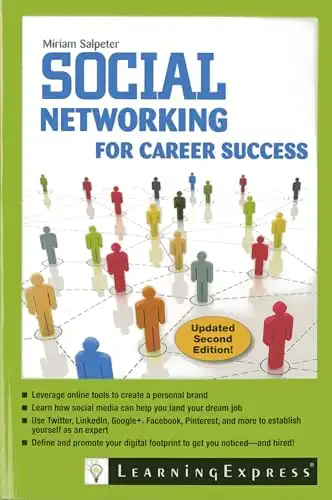We may receive compensation when you click on links to products from our partners. For more information, please see our disclosure policy.
Job hunting is rarely ever fun. More often than not, it’s a series of dead ends, disappointments, and job interviews you thought went well, but did not. Sometimes along the way, many people just resign themselves to the fact that it’s all a matter of luck, but they couldn’t be more wrong.
Finding job-seeking success is more than just a game of numbers. Sure, if you keep applying to a lot of different places, at least some of them are bound to get back to you or offer you a job, but are those going to be the kind of jobs you really want? Can you logically say there’s nothing you can do at that point to increase your chances? Of course not.
Let’s explore the key habits of successful job seekers and how you can apply them to your own
![]()
Research and Understand the Job Market
Successful job seekers always begin by thoroughly researching the job market. They understand the demand for specific roles, emerging trends, and the skills employers are looking for. This research helps them target their
Knowing the current job landscape also enables them to anticipate which industries are hiring and where they may have the best chance of success. By staying informed, they can tailor their resumes and cover letters to meet the needs of potential employers, increasing their chances of landing interviews.
Network Strategically
Networking plays a critical role in
Networking helps create opportunities for referrals, which can significantly improve the chances of getting noticed by hiring managers. Successful job seekers also maintain an active presence online, showcasing their expertise and demonstrating their value to potential employers.
Tailor Applications to Each Job
One habit that sets successful job seekers apart is their ability to tailor their application materials for each job opportunity. Instead of sending out generic resumes and cover letters, they customize each application to highlight relevant skills, experiences, and accomplishments that align with the specific job description.
This attention to detail shows employers that they’ve taken the time to understand the role and are genuinely interested in the position. Tailoring applications not only improves the chances of passing applicant tracking systems (ATS) but also makes a stronger impression on hiring managers.
Follow Up After Interviews
Following up after an interview is a key habit of successful job seekers. They understand that this small step can leave a lasting positive impression on the hiring
This follow-up communication not only shows professionalism and enthusiasm but also keeps them top of mind for the hiring manager. It’s a crucial step that many overlook, but it can make all the difference in standing out from other candidates.

![]()
Keep Learning and Upskilling
Successful job seekers never stop learning. They continuously
Employers value candidates who show initiative and adaptability. By consistently upskilling, job seekers can remain competitive and open doors to new opportunities in their field. This proactive approach can give them a significant edge over other applicants.
Does Your Resume Stand Out?
Consider what kind of jobs you’re applying for, and ask yourself if your resume reflects all relevant experiences that would make you seem like an ideal candidate. The reason we’re using the term “relevant” experiences is simple – you can’t possibly hope to compress your whole life story and the entirety of your professional experience into a single resume, so it’s important to prioritize what goes into it for every job.
Many successful candidates tweak their resumes a little depending on what job they’re applying for, and it’s fine as long as you’re being honest. You can’t apply to a content writing job and an editing and proofreading role with the same resume.
On the other hand, it’s important to keep your resume easy to read and scannable. Take this example of a Chief Officer resume, and ask yourself if

JobCopilot | Automate Job Applications
Get 10X more Job Interviews with JobCopilot
Automatically apply to jobs from 50,000+ companies worldwide
Try it now
We earn a commission if you click this link and make a purchase at no additional cost to you.
![]()
Keep Your Cover Letter Relevant
The cover letter is your chance to get the attention of your prospective employers. Instead of trying to impress them by listing all the experience you have so far, or by listing everything you’ve ever done, keep the cover letter focused on them more than on you.
It doesn’t seem like a good idea at first, but it’s the simplest way to put it. Instead of telling them all about you, tell them all about what you can do for them, and bring up any relevant experience or past projects from your resume that back that claim up. When the employer reads about all the things you can do for them, you’ll have more chances of hearing back than when you take the old approach.
Focus on the First Impression
We’re not just talking about the first impression at an interview, but about other smaller things that usually come before the interview as well. Do you have a photo of yourself uploaded to your Gmail account? Now that more and more employers want to hire remote workers, they’re interested in LinkedIn profiles and social media accounts – how do your LinkedIn and X accounts look? Are your work social media profiles up to date, or will employers see someone uninteresting and unprofessional when they see your profiles?
Job hunting is rarely ever fun. Many times, it’s a series of dead ends, disappointments, and job interviews you thought went well, but did not. Many people just resign themselves to the fact that it’s all a matter of luck, but they couldn’t be more wrong.Click To Tweet
Make Your Resume Scannable
Hiring managers review countless resumes daily, so it’s essential to ensure yours stands out and is easy to scan. To make a strong impression, focus on clarity and organization. Use bullet points to break up text and highlight key accomplishments, making
Consider using columns to create a clean layout that maximizes space and keeps the document visually appealing. While some resumes benefit from graphics, be cautious not to overdo it, as excessive design elements can be distracting and complicate the scanning process. Keep it simple, professional, and tailored to the job you’re applying for. Including a headshot is not typically necessary unless you’re in an industry where it’s standard practice. Focus instead on creating a streamlined, well-organized resume that showcases your skills and qualifications effectively.
Practice Interviews
Don’t make the mistake everyone else makes and go to the interview unprepared. Google the most asked

ZipRecruiter – Find Your Dream Job
ZipRecruiter can help you find the best jobs, employers, and career advice. Upload your resume, and you’ll have the opportunity for a free expert critique that will help make sure your value shines through.
Get Hired
We earn a commission if you click this link and make a purchase at no additional cost to you.
![]()
Stay Optimistic
Looking for work seems like a hopeless task at times, but a little patience and consistency go a long way. You’re putting in all this work for you, and you need to keep your head up high and keep showing up for yourself every day until you’re successful.
Source link
All Materials on this website/blog are only for Learning & Educational purposes. It is strictly recommended to buy the products from the original owner/publisher of these products. Our intention is not to infringe any copyright policy. If you are the copyright holder of any of the content uploaded on this site and don’t want it to be here. Instead of taking any other action, please contact us. Your complaint would be honored, and the highlighted content will be removed instantly.

